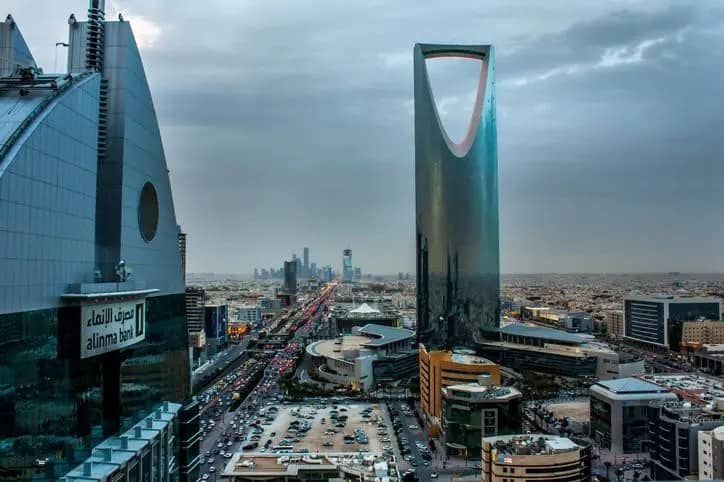Following three days of fruitful sessions, the Real Estate Future Forum 2024 came to an end on Wednesday. The event saw the signing of more than 50 agreements and memoranda of understanding (MoUs) totaling more than SAR 100 billion.
New developments, major issues, developing trends, and viable financing options for the real estate sector were the main topics of discussion at the forum.
It also sheds light on the impact of natural factors on the real estate industry and its role in improving business quality. The theme for the forum was “The Power of Resilience: Building a Sustainable and Prosperous Real Estate Future.”
There were 300 speakers at the event representing 85 different countries, including local and international real estate experts, government representatives, representatives of the private sector, economists, investors, and decision-makers.
Over thirty dialogue sessions and twenty-five workshops covering critical strategic issues were held during the forum. A related real estate exhibition also featured the newest advancements in cutting-edge real estate products, financing options, and technologies.
Minister of Municipal, Rural Affairs, and Housing Majid bin Abdullah Al-Hogail stressed the value of the real estate industry in the Saudi economy during his speech at the forum’s opening. He emphasized how it directly affects human life, family stability, and the provision of a decent standard of living that fulfills expectations and raises quality of life.
Al-Hogail pointed out that the construction sector’s contribution to the non-oil GDP increased to 11.3% by the third quarter of 2023, while real estate activities’ contribution was 12.2%. He reaffirmed the importance and dynamism of the real estate industry by pointing out its connections to more than 120 other economic sectors.
The Kingdom’s Vision 2030, headed by HRH the Crown Prince, seeks to identify alternatives and comparative advantages available across the Kingdom’s regions to diversify sources of income, according to Prince Turki bin Talal bin Abdulaziz, the governor of the Asir Region. He underlined how crucial it is to recognize each region’s comparative advantages and use them to move the development wheel forward in each area.
The ministry has begun implementing real-estate identity for inheritances, according to Minister of Justice Dr. Walid bin Muhammad Al-Samaani, who made this announcement during a dialogue session titled “Leading Transformation in Decision-Making”.
According to him, this procedure makes sure that all the instruments are unique and that there is only one electronic platform being used for the estate’s division, which will expedite and simplify the process from the owner’s passing until the heirs obtain their rights.
In addition to collaborating on numerous products with the Ministry of Municipal and Rural Affairs and Housing, he emphasized that the ministry is still building trading platforms through the real estate stock exchange this year.
As the Kingdom hopes to capture a sizable portion of the 1.7 billion tourists worldwide, Minister of Tourism Ahmed bin Aqeel Al-Khateeb stated that the Kingdom’s expansion in implementing major projects aims to develop the tourism sector and attract investments.
The minister went on to say that the Kingdom wants to execute massive projects to welcome 150 million tourists by 2030. According to him, the national economy will grow by SAR 750 billion thanks in part to the tourism industry.
To generate economic and employment opportunities for citizens, Ahmad bin Sulaiman Al-Rajhi, Minister of Human Resources and Social Development, emphasized the ministry’s integration with the public and private sectors.
He pointed out that as a result of this endeavor, the proportion of Saudis employed in the private sector rose from 1.7 million in 2019 to 2.3 million in 2023—a record high—which included 361,000 unemployed individuals.
In real estate, the Ministry of Municipal, Rural Affairs, and Housing, represented by the Third Sector and Community Participation Agency, launched the “Professional Volunteering” initiative during the forum. To support youth development and encourage volunteerism in the non-profit sector, this initiative has a strategic partnership with the National Center for the Development of the Non-Profit Sector.
Several significant real estate-related issues were the main topics of discussion at the third annual Real Estate Future Forum. The conference covered cutting-edge technology and international best practices that could support sustainable development for a better tomorrow. It also covered the effects of natural disasters on the sector, sustainable financing options, and real estate’s contribution to raising the caliber of businesses.
Specialized experts from both inside and outside the Kingdom took part in lengthy discussions and sessions at the forum. They discussed about how different approaches affected the real estate sector’s expansion and viability, how the real estate business was changing, and how technology would affect the sector’s future.
The experts discussed how technological advancements affect urban flexibility and architectural creativity. The future of commercial real estate, technological services in real estate, the untapped wealth of cities, and the role of real estate in enhancing business quality were also covered.
The CEO of the forum, Abdullah Al-Harbi, commended the tremendous success of the events at the end. He mentioned that real estate contracts and memorandums of understanding were signed at the forum, which drew speakers and investors from both inside and outside the Kingdom. He emphasized that the forum will still take place in the upcoming years.
